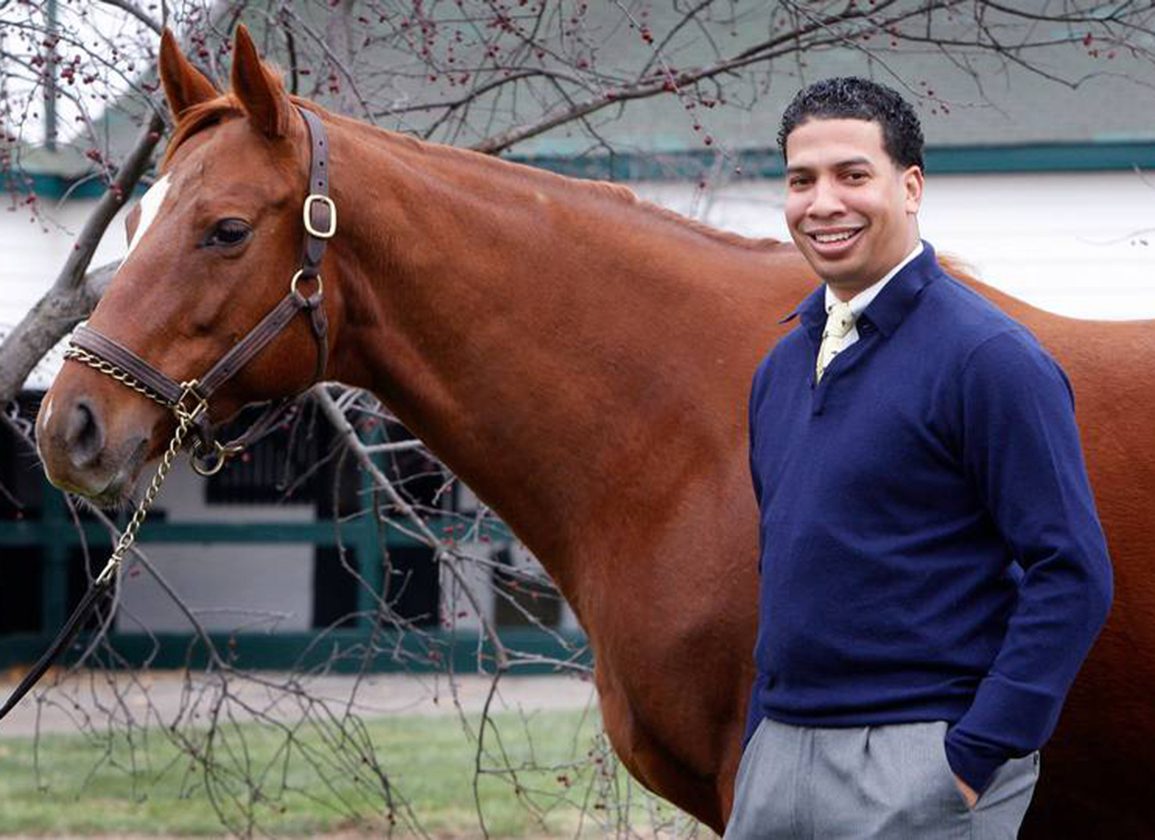The Week In Review, by T.D. Thornton
Does Kentucky need to do something to stop the outflux of horses leaving the state after being claimed? And will any attempt at corrective action by rewriting regulations result in unintended consequences that could create their own problems?
Those questions were up for debate last week when the Kentucky Horse Racing Commission (KHRC)'s rule committee met to kick around ideas that could surface in a near-future proposal.
Commissioner Frank Jones, Jr., the rules committee chair, said that last year 779 Thoroughbreds were claimed out of Kentucky races. Of that number, 412 made their next start outside of the state.
“It's diluting the inventory of horses that we have,” Jones said.
“The claiming rule is a very, very intricate and difficult thing to wholesale [amend],” Jones said, adding that by his recollection over the decades, “this claiming rule has probably been changed about six times.”
But, Jones added, “You put the lid on the pot; the pot keeps boiling” with new issues.
One suggestion was to mandate that an outfit had to have started a horse at the race meet in question prior to being allowed to drop a claim slip for another horse at that track.
But Commissioner Greg Harbut was quick to point out that a problem with that methodology is that larger stables with many starters would have an edge over smaller outfits with only a horse or two.
“I believe that would give certain individuals a distinct advantage over other stables,” Harbut said, alluding to the likelihood that a sizable outfit might be able to achieve getting starters in on the first day of a meet, while smaller-scale owners and trainers are at the mercy of the condition book to determine when their individual horses might get in.
Harbut instead suggested that the rule tweak could be re-phrased to make it so that licensees who are stabled in Kentucky get preference at the claim box.
“I think if they're licensed and stabled here, it does show an intent to support Kentucky racing. I think that's all that we are looking for,” Harbut said.
Jones said that while a “residency” idea might have some traction, regulators have to tread carefully. Previous attempts at rulemaking to force claimed horses to stay in Kentucky for a longer period of time are “when we run into possible anti-trust” challenges, Jones said.
Jones also added that a residency rule might not be able to stop Kentucky trainers who claim horses for out-of-state outfits for a fee.
“Some people that are claiming horses in Kentucky, [then] you look up in 30 or 40 days and the same horse is entered in someone else's name,” in Indiana or in another nearby state, Jones said.
“There are some trainers who will claim horses for a $500 fee [and] it's been like that for at least the last five or 10 years,” Jones said.
“You will always have individuals that are going to skirt around the rules,” Harbut acknowledged, noting that regulations alone won't stop “individuals that still want to be aggressive” about claiming.
“The ownership landscape has changed in the last five to seven years,” Harbut explained. “A lot of entities are teaming together, not only in racing, but at horse sales and other things of that nature.”
Commissioner Bill May suggested that the committee step back and take in the overall landscape prior to recommending any changes.
“Is it a big enough issue that we need to actually memorialize it in the regs?” May asked. “We don't need to get in the business of writing a reg for every scenario that comes along, because we're never going to be able to address every issue.”
May continued: “I don't have the answer to whether or not [the claiming outflux] is a big problem. But if it's not a big issue, if it's only going to affect one or two people, I'm not sure it's worth fooling with. But if it's going to affect a multitude of people, then it needs to be addressed.”
Harbut brought up a related point: How many of those claimed horses eventually returned to Kentucky after briefly leaving the circuit?
Jones didn't believe that stat that had been compiled within the report he had been referencing.
“The reason I ask is that I know at the end of the racing season here in Kentucky, we no longer run dirt or turf, so a lot of those trainers that support Kentucky year-round go off to other jurisdictions such as Oaklawn, Fair Grounds, [where they] have the option of running on dirt or turf,” Harbut said.
“They, in turn, bring those horses back to Kentucky,” Harbut said.
Harbut said he would like better understanding of that seasonal give-and-take aspect of the claimed horse outflux before moving forward with any rules rewrite. The committee took no action on formally adopting any changes to the existing claiming rules.
Not a subscriber? Click here to sign up for the daily PDF or alerts.






